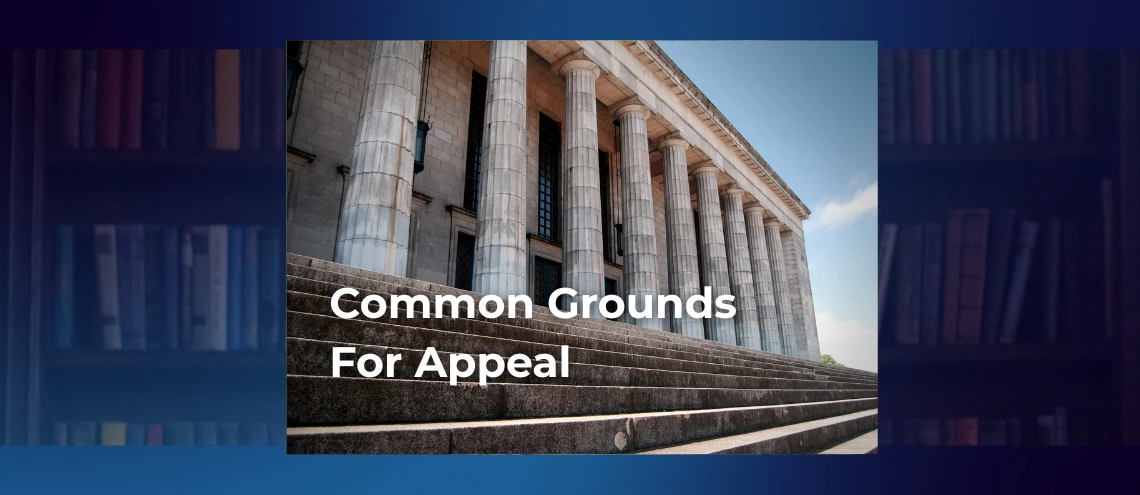
If you or a loved one has been convicted of a crime here in Texas and your or their initial appeal failed to provide relief, you need to know what options there are with common grounds for post-conviction appeals.
An experienced Texas criminal appeal attorney will meticulously review your case and all your case files and evidence looking for that “thing” that could provide a path to freedom.
Criminal appeals attorneys can cite any of the following reasons to appeal your conviction. Depending on the strength of the argument, the Texas Criminal Appellate Court can overrule your conviction.
Common Grounds Presented by a Criminal Appeal Attorney
Here are the common grounds for appeals which are presented by an expert criminal appeal attorney:
- False Arrest
If the law enforcement officers violated search and seizure laws during your arrest your case could be overturned on appeal.
If they didn’t have a proper arrest warrant to arrest you, your case could also be overturned. - Insufficient Evidence
Jurys do sometimes make mistakes and can decide their verdict based on emotion or prejudice and convict you even when there isn’t compelling evidence.
The prosecution must prove their case beyond a reasonable doubt. If the jury convicts you when there is a lack of evidence you can appeal the sentence on the grounds of insufficient evidence. - Exclusion of Evidence
Before your court proceeding, the Judge in your case meets with both your criminal defense lawyer and the prosecutor.
It is the Judge who decides the pieces of evidence that are to be presented in court during your trial.
The jury hears that evidence.
Like juries, Judges can get things wrong and prevent certain evidence from being presented in your trial.
In this instance, you can seek relief by citing exclusion of evidence (the evidence wasn’t presented). - Ineffective Counsel
Probably the most prevalent ground for an appeal is ineffective counsel. This is where your attorney messed up, committed a legal error, and may not have presented your case strongly.
If you can prove your counsel was not effective this is a violation of the Sixth Amendment and you are entitled to a new trial.
The attorneys’ contact had to have fallen below the objective standard of reasonableness. - Sentencing Errors
The judge is required to state clearly the reason for a particular sentence.
If the judge ignores sentencing rules, then it becomes an illegal sentence.
If you can convince the appellate court that you have been sentenced illegally, then the court orders a review of the verdict in the trial court. - Prosecutorial or Jury Misconduct
This would be where you have actual proof that the prosecutor in your case or the jury deciding your case had engaged in a dishonest act or used improper methods to convict you.
This would result in a new trial if the appeals court concurs.
What Are the Types of Misconduct?
Common misconduct items on the part of the jury or prosecutor that can be uncovered by an expert criminal appeal attorney include:
- A jury refusing to deliberate
- Failure on the part of the prosecutor to conduct a factual investigation
- The prosecutor concealing relevant information and/or evidence on purpose
- The prosecutor making comments on evidence that has been ruled inadmissible, that is not able to be presented to the jury.
- The jury convicts you based on passions and prejudices.
Blizzard and Zimmerman Attorneys team of post-conviction attorneys, led by Texas Board of Legal Specialization certified criminal appeal and criminal defense attorney Jacob Blizzard stand ready to vigorously appeal your conviction. Contact us today.

